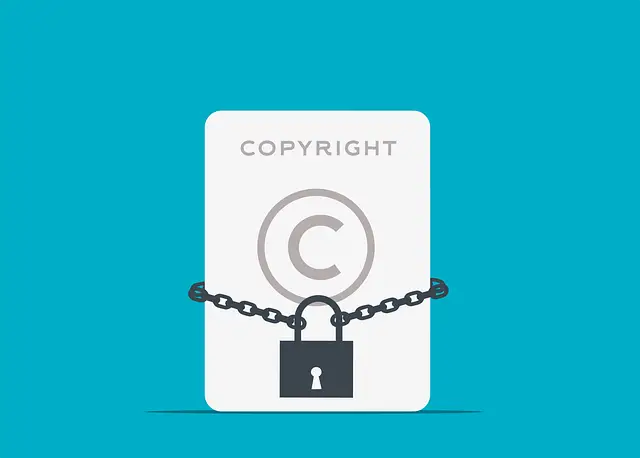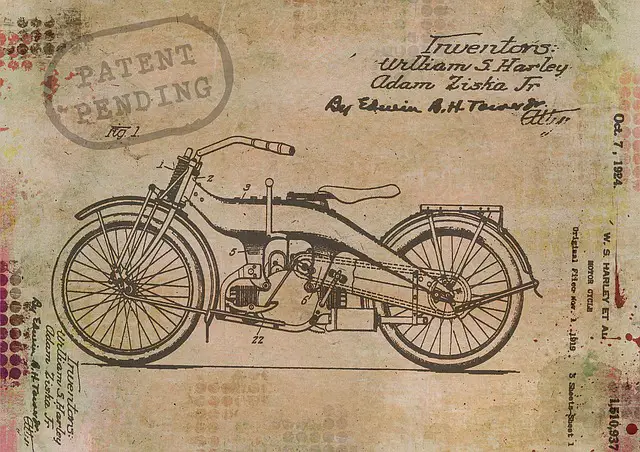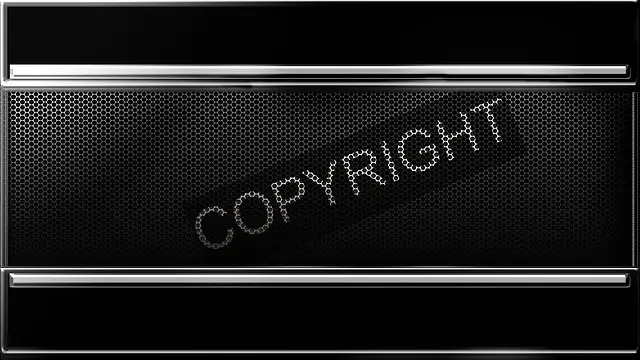Copyright and patent laws are two of the most important intellectual property rights that help protect businesses. Copyright protects original works of authorship while a patent gives inventors exclusive rights to their inventions. Both copyright and patents have safeguards in place to ensure that creators get the legal protection they deserve.
What is Copyright?
(Image by Mohamed Hassan from Pixabay )

Copyright is a type of intellectual property that gives the creator of an original work exclusive rights to determine how that work is used. Copyright protection is available for a wide variety of works, including books, music, movies, and architectural designs. Copyright law provides writers, artists, and other creators with a financial incentive to create new works by giving them control over how those works are used.
What is Patent?
(Image by Oberholster Venita from Pixabay )

A patent is a form of intellectual property that gives its owner the legal right to exclude others from making, using, or selling an invention for a limited period of time. Patents are granted by national governments and provide inventors with a monopoly on their invention for a certain number of years. In order to obtain a patent, an inventor must file a patent application with the relevant government agency.
Copyright vs. Patent – Differences
Both copyrights and patents are forms of intellectual property protection. They both give the owner of the copyright or patent certain exclusive rights, and they both can last for a long time (in the case of a copyright, the term is the life of the author plus 70 years; in the case of a patent, it’s 20 years from the date of filing).
However, there are some key differences between copyrights and patents. One major difference is that copyrights protect creative works, while patents protect inventions. Copyrights also generally require less paperwork and are cheaper to obtain than patents. And finally, while you can get a copyright automatically just by creating a work, you must apply for a patent.
Here are some other differences
Purpose: Copyright protects creative works such as literature, music, and art, while patents protect inventions and discoveries.
Duration: Copyright typically lasts for the life of the creator plus a certain number of years after their death, while patents are generally granted for a term of 20 years from the date of filing.
Registration: Copyright registration is not always required, but it can provide additional legal protections. Patent registration is required in order to be granted a patent.
Ownership: Copyright is typically owned by the creator of a work, while patents are typically owned by the inventor or the inventor’s employer.
Exclusive rights: Copyright grants the owner the exclusive right to reproduce, distribute, and display the work, while patents grant the owner the exclusive right to make, use, and sell the invention.
Public disclosure: Copyrighted works can be made publicly available without losing their protected status, while inventors must file for a patent before publicly disclosing their invention or risk losing the ability to patent it.
Infringement: Copyright infringement occurs when someone uses a copyrighted work without permission, while patent infringement occurs when someone makes, uses, or sells an invention that is protected by a patent without permission.
International protection: Copyright and patents are protected by international conventions, but the specifics of protection vary by country.
Is a patent like a copyright?
A patent is a form of intellectual property that gives its owner the legal right to exclude others from making, using, or selling an invention for a limited period of time. patents are granted by the government and are only available for inventions that are new, useful, and non-obvious.
Copyrights, on the other hand, are a form of intellectual property that protects original works of authorship, such as books, movies, and music. Copyrights are granted by the government and give their owners the exclusive right to reproduce, distribute, and perform their work.
Why is patent stronger than copyright?
As the name suggests, patents are stronger than copyrights. A patent gives the inventor the right to exclude others from making, using, or selling the invention for a limited period of time. Copyrights, on the other hand, only give the creator the right to control how their work is used and reproduced.
What is an example of a copyright?
The best example of a copyright is an original work of authorship, like a book, song, or movie. This is because copyrights protect the expression of an idea, not the idea itself. So, if you have an idea for a book, but somebody else writes it down first, they would own the copyright to the expression of that idea in words on paper (or computer). However, you would still own the idea itself and could write your own book about it.
Do patents expire?
Patents expire 20 years from the date of filing, regardless of whether the patent is granted or not. After a patent expires, anyone can make, use, or sell the invention without permission from the patent owner.
Do copyrights expire?
Copyright is a type of intellectual property that gives the creator of a work exclusive rights to use, distribute, and modify that work. Copyright protection lasts for the life of the author plus 70 years. After that period, the work enters the public domain, meaning anyone can use it without permission from the copyright holder.
Copyrights do not expire, but they can become public domain. Public domain is when a work is no longer copyrighted and anyone can use it. A work can become public domain in a few ways:
- The copyright holder dies and doesn’t renew the copyright
- The copyright expires because it is not renewed after 28 years
- The copyright holder intentionally donates the work to the public domain.
When a work becomes public domain, anyone can use it without permission from the copyright holder.
What are the types of copyright?
There are three main types of copyright: Literary, Musical, and Artistic. Each type has its own set of rules and regulations.
Literary copyright covers anything that is written down, including books, plays, poems, and other types of writing. To get literary copyright protection, the work must be original and have a minimal amount of creativity.
Musical copyright covers anything that is composed or performed, including songs, symphonies, and other types of music. To get musical copyright protection, the work must be original and have a minimal amount of creativity.
Artistic copyright covers anything that is created visually, including paintings, drawings, photographs, sculptures, and other types of art. To get artistic copyright protection, the work must be original and have a minimal amount of creativity.
Can someone steal a patent?
Yes, it is possible for someone to steal a patent. A patent is a form of intellectual property, and like any other type of property, it can be stolen. There are a few ways that this can happen:
- Theft: Someone could physically steal the patent documents or the idea itself.
- Espionage: A company or individual could spy on another company or individual to learn about their patented invention.
- Cyber theft: Someone could hack into a company’s computer system and steal the patent information that way.
- False claims: Someone could make false claims about an invention in an attempt to get a patent for themselves.
What are the most common reasons why patents are rejected?
There are a variety of reasons why patents may be rejected, but some of the most common include:
- The invention is not new or novel
- The invention is not useful
- The invention is not adequately described in the application
- There are already existing patents for similar inventions
Frequently asked questions about copyrights and patents
How to create a patent?
A patent is a legal document that grants an inventor the exclusive right to make, use, and sell an invention for a certain period of time. In order to obtain a patent, an inventor must file a patent application with the USPTO. The application must include a detailed description of the invention as well as claims that define the scope of the inventor’s rights.
Do patent owners get paid?
Patent owners are typically paid for their patents through licensing fees. When a company licenses a patent from a patent owner, the patent owner receives a fee for the use of the patent. The amount of the fee is typically based on the value of the patent and the potential revenue that can be generated from using the patent.
Can anyone own a patent?
There is no definitive answer to this question as it depends on the country in which you want to file your patent application. In the United States, for example, an individual can own a patent. However, in some countries, only corporations or other legal entities can own patents. Therefore, it is advisable to consult a patent attorney in your country to determine whether you meet the requirements to file a patent application.
Can you copyright your name?
There are a few things to consider when asking if you can copyright your name. For example, are you using your name in connection with a business? If so, you may be able to trademark your name. Trademarks protect words, phrases, logos, and other symbols that identify businesses and their products. Copyrights, on the other hand, protect creative works like books, music, and artwork. So if you’re using your name in connection with a creative work, you would want to copyright it.
Why is Coca Cola not patented?
There are a few reasons why Coca Cola is not patented. One reason is that patents typically expire after 20 years, so if Coca Cola were to patent their formula, it would only be protected for a limited time. Additionally, patents can be expensive to obtain and maintain, so it may not be worth it for Coca Cola to pursue a patent. Finally, Coca Cola may not want to patent their formula because doing so would make it public knowledge, and they may prefer to keep it a trade secret.








